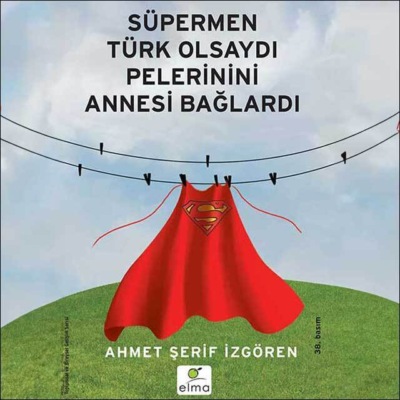Kitabı oku: «The Way of the Strong», sayfa 8
PART II
CHAPTER I
AFTER EIGHTEEN YEARS
Monica Hanson stood in front of the full-length mirror in her bedroom. For a long time she stood viewing her fair reflection with a smile at once half humorous, half tearful.
Thirty-five!
It sounded terrible as she muttered the age she knew herself to be. Thirty-five! Yet the perfect blue eyes were not a day older, as they looked back at her out of the glass. There was no hardening in their depths; there were no gathering lines about their fringed lids. Perhaps there was a deeper, wiser look in them; a look suggesting a wider knowledge, a more perfect sympathy with the life into which they had peeped during her years of struggling. But there was no aging in them. The rich, ripe mouth, too, so wonderfully firm, yet gentle, the broad, intelligent forehead with its fair, even brows. There was not one single unsightly line to disfigure these features which displayed so much of the strong character which lay behind them. Her wealth of fair, wavy hair, which since her earliest days had been her one little conceit, her constant joy and pride, was faultlessly dressed, nor had she ever yet found in its midst one of those silver threads whose discovery never fails to strike terror into the heart of an aging woman.
No, she beheld nothing in her reflection to cause her a single pang, a single heartache. Yet her heart was aching; and the pain of it was in the smile which came back to her from her reflection.
Had Monica only known it, the years had been more than kind to her. With a little more womanly vanity she would have understood that her girlish attractions had been increased a hundredfold. Not only had the years matured her figure to perfections which can never belong to early youth, but they had endowed her with a beauty of soul and mind, far more rarely found in one of such unusual physical attraction.
But such ponderings before her glass were useless, perhaps harmful. It was all so impossible. So she turned away with a little impatient gesture, and, picking up the letter lying on her bed, she passed through the folding doors into her sitting-room beyond.
The winter sun was shining in through frosty windows; that wonderful winter sun which brightens and makes joyous the Canadian dead season, without shedding sufficient warmth to disturb the thermometer from its despairing depths of cold.
She crossed to the window, and stood beside the heat radiator while she read her letter for perhaps the twentieth time. It was quite short, and intensely characteristic of the writer. Monica understood this. The lack of effusion in no way blinded her to the stormy passion which had inspired it.
"Dear Monica:
"I am going to call on you at 4 o'clock this afternoon, if you have no objection. If you have, 'phone me. I simply cannot rest until the subject of our talk the other night is settled.
"Yours,
"Alexander Hendrie."
There was a wistful longing in her eyes as the woman looked up from the brief note. The subject of their talk. He could not rest. Had she rested, or known peace of mind since that evening? She knew she had not. She knew that come what might that calm which belongs to a heart untouched by love could never again be hers. She knew that love, at last, had come knocking at the door of her soul; nor had it knocked in vain, in spite of the impossibility of it all. She had not 'phoned. Instead she had spent two hours over her toilet to receive the man who was her employer, and had now become her lover.
No one knew better than she the happiness that might have been hers in her newly found regard for this great wheat grower of Alberta, had things only been different. She loved him; she had admired him ever since she came into his employ, but now she loved him with all the long-pent passion of a woman who has for years deliberately shut the gates of her soul to all such feelings.
She knew her love must be denied. There was no hope for it.
The trials she had gone through for the sake of her pledge to her dying sister were far too vividly in her mind to leave her with any hope for this love of hers. She must crush it out. She must once more steel herself, that her faith with the dead might be kept.
She dropped upon the ottoman beside the window, and, gazing out on Winnipeg's busy main street, gave herself up to profound thought. Her incisive brain swiftly became busy, reviewing the career which had been hers since – since young Frank, her beloved boy, the child who had cost her a sister's life, had become her one object and care.
Her deep eyes grew introspective, and her pretty lips closed firmly.
She had not traveled an easy road during those years. Far from it. The rocks prophesied by the kindly doctor had been quickly realized. They had come well-nigh to wrecking her craft at the outset. Only that its ribs were so stout, and the heart that guided it so strong, it must inevitably have been doomed.
So much for her youthful conceit; so much for the boundless optimism of her years. She was caught among the very first shoals that presented themselves in the ebb tide of her fortunes six months before the completion of her contract on the Daily Citizen. Would she ever forget the – yes, tragedy of that moment? She thought not.
Everything had gone along so smoothly. Her fears had been lulled. There was no sign to point the coming of the disaster. Yes, that was it. There had been overconfidence. The complications at her sister's death had been forgotten. There had been no unpleasant developments to remind her of the pitfalls with which she was surrounded. So she had grown careless in her confidence. In the warmth of her girl's heart, her rapidly growing love for the little life in her charge, she found herself spending every moment of her spare time with the child she intended to teach to call her "mother."
They were happy days. The joy of them still remained. Nor, for all the trouble they had caused her, did she regret a single one of them. But her indiscretion grew, and so the blow fell.
It was on a Sunday. In the afternoon. She remembered it well; a glorious sunny day in early summer. She was pushing the baby coach along the sidewalk of the broad country road toward the city. She had paused to readjust the sunshade over the child's head. When she looked up it was to discover a light, top buggy, drawn by a fast trotter, rapidly approaching. Mr. Meakin was driving it, and beside him sat his little, chapel-going wife.
They saw her and promptly pulled up; and instantly Monica knew that trouble was knocking at her door. Mrs. Meakin did not like her. She did not approve of her husband's secretary; and Mrs. Meakin was one of those narrow, straight-laced puritans, who never cease to thank Providence that they are so pure.
"Why, it's Miss Hanson," she promptly exclaimed. "And – oh, the lovely baby. Why – " She looked at Monica's scarlet face and broke off.
Mr. Meakin took up the greeting in the cordial fashion of a man who is well disposed.
"Say, Miss Hanson, it's a hot day for you to be pushing that coach. You surely ought to be around an ice cream parlor with one of your beaus. Not out airing some friend's kid."
But Monica's confusion only increased under the sharp eyes of Mrs. Meakin, which never left her face.
"A baby can't have too much of this beautiful air," she said helplessly.
"Why doesn't its mother look after it?" demanded Mrs. Meakin.
"She's – she's busy."
Monica's attempts at evasion were so feeble, she had so little love for subterfuge, that, to a mind as prone to suspicion as Mrs. Meakin's, the word "mystery" quickly presented itself.
"Whose is it?"
The inevitable question seemed to thunder into the wretched girl's ears.
Whose is it? Whose is it? It was useless to lie to this woman, whom she knew had no love for her. So on the spur of the moment she did the only thing that seemed possible, seeing Mr. Meakin was her employer. But she did it so badly that, even while she spoke, she knew her doom was sealed.
"She belongs back there." Monica pointed at the distant farm house.
"That house?" cried Mrs. Meakin sharply. "Why, that's Mrs. Gadly's. I – " She turned abruptly to her husband. "We'd better drive on, or we'll be late back for supper, and that will make us late for chapel."
With a flourish of his whip, and a cheery good-bye, Mr. Meakin set his "three-minute" trotter going again, and Monica was left to her dismay.
She knew. She needed no instinct to tell her. It had all been written in Mrs. Meakin's icy face. The woman would find out all about the baby she had seen her husband's secretary with. She would smell out the whole trail with that nose which was ever sharp for an evil scent.
She continued her walk thinking hard all the while, and finally took the child back to its nurse at the usual time.
Mrs. Gadly met her at the front door, and Monica put a sharp question.
"Has Mrs. Meakin been here?"
"She surely has, mam," replied the woman, smiling. "And a God-fearin' woman she is. I've known her years an' years. I didn't jest know you was her good man's secretary. She's a lady, she is; a real, elegant lady. An' she was all took up with the baby, an' the way I'd looked after him. She said as it was a great thing for a woman who 's lost her baby to have the care of another woman's child, kind o' softens the pain. An' when I told her as you paid me so liberal for it – Why, mam, you ain't faint? Ah, it's the sun; you best come right inside and set down."
It had been a terrible moment for Monica. She knew that her career in San Sabatano had suddenly terminated. The God-fearing Mrs. Meakin would have no mercy on her, particularly as she was her husband's secretary.
She returned to her apartments that evening with her mind made up to a definite course; and, on the Monday morning following, before she went to her office, she looked up her contract with the Daily Citizen. She took it with her. She knew that the thing she was about to do was a tacit admission of the child's parentage. But she intended it so to be, since truthful explanation was denied her.
Mr. Meakin was amiability itself. But there was evident relief in the sigh with which he accepted the return of the girl's contract.
"I'm real sorry, Miss Hanson, real sorry," he said sincerely. "But I guess you're right, seeing things are as they are. You see, Mrs. Mea – you see, San Sabatano has notions. I'd just like to say right here, though, I'm the loser by your going. I'm the loser by a heap. An' whenever you're wanting a reference I'll hand you a bully one. Just you write me when you need it. Meanwhile the cashier'll hand you a check for salary, right away."
Yes, whatever his wife's attitude toward her, Mr. Meakin stood her good friend, for, on her departure, the cashier handed her a check for three months' salary – which she had not earned!
After she left San Sabatano her fortunes, for a while, became more than checkered. Her "ups" were few, and her "downs" were considerably in the ascendant. For a long time her youth prevented her obtaining work in which there was any scope for her abilities and ambitions, consequently the salaries were equally limited in their possibilities. Often she had to accept "free lance" stenography and typing, and not infrequently auxiliary clerk work of a humdrum and narrowing order. But to none of these things would she definitely commit herself, nor would she permit them to shut out the sun of her ambitions. She would keep on working, and watching, and waiting, for that opportunity which she felt was bound to come in the end.
Thus, with each reverse in the stern battle she was fighting, she grew wider in her knowledge of life as it was. Her upbringing had blinded her, and her own simple honesty and faith had further narrowed her focus. But these things were passing, and her view widened as the months lengthened into years.
But her trials were many. Not the least of them was when, as Miss Hanson, it was discovered she was always accompanied by a boy with blue eyes and fair hair, practically the color of her own. Nor was there any chance of quieting the voice of scandal, when it was known that the particular child always called her "mother."
Twice this occurred in boarding houses of an ultra-respectable tone, which, on the whole, was not so damaging as it was annoying. But when her supposed offence attacked her livelihood, as, on more than one occasion, it very soon did, it was with heartache and grief that Monica realized that a drastic change must be brought about.
She knew that, for his own sake, she must temporarily part with the boy. It was imperative that she earn the money necessary for his education, and, with this scandal attaching to her, that would very soon be made impossible. Furthermore, she realized that he was rapidly growing to years of childish understanding when it would be hopeless, and even dangerous, to attempt to answer the multiplicity of questions regarding his supposed father which flowed from his lips, without giving a damaging impression to his young mind. Later, when he grew up, she would tell him the false story which she had hardened her heart to, and trust to Providence that it might satisfy, and have no evil consequences.
It was a terrible blow to part from him. She loved the boy, whom she had had christened Frank Burton, with all the profound affection of her ardent nature. He was possibly more precious to her than her own son might have been, if only for the fact of the pains she was at to keep him, and the trials which his upbringing brought her.
Then, too, she was never quite without a haunting fear that at any time some unforseen circumstance might arise and snatch him from her care. Besides these things, the boy inherited all his mother's generous nature; all her loyalty; and, in a hundred other ways, reminded her of the sister she had loved. To Monica he was the sweetest creature in the world, and the parting with him came well-nigh to breaking her heart.
But it proved itself for the best. It almost seemed as if Frank's going were in some way responsible for the change of fortune which so quickly followed. Within a month, Monica secured an excellent position in a Chicago wheat broker's office at the biggest salary she had ever earned. Furthermore, she remained in this place for a year, with unqualified success. Thence she went to another wheat operator's office. Then on, from post to post, always advancing her interests, and always in the wheat world. Truly the boy's going away to school seemed like the first stepping-stone to the successful career she so ardently desired.
So Frank's education was completed in the manner Monica most desired. Her experience in the world of wheat inspired her with definite ideas as to his future; ideas in which, fortunately, he readily concurred.
No one knew better than Monica the fortunes to be won from the soil, and she was at pains to impress on his young mind that such fortunes were far more honestly and easily earned than in the commercial world to which she belonged.
Therefore at the age of fifteen Frank repaired to an agricultural institution to learn in theory that which, later, he was to test in practice.
It was during his career at the agricultural college that Monica first became the secretary of Alexander Hendrie, the greatest wheat grower and operator in the west of Canada. He was a man she had known by reputation for several years, ever since she first stepped within the portals of the wheat world. She had never come into actual contact with him before, but his name was a household word wherever wheat was dealt in. Besides being a big operator on the Winnipeg and Chicago markets, he owned something like thirty square miles of prairie land in Alberta under wheat cultivation, and was notorious for his scrupulous honesty and hard dealing. It was a saying in the world of which he was the uncrowned king that it was always safe to follow where he led, but only to follow. Of course he was a millionaire several times over, but there was no ostentation, no vulgar display with him. He lived a sparing, hard-working life, and in such an employ Monica felt that she had reached the goal of her career.
The manner of her meeting with him was curious, and almost like the work of Fate. But the manner of her engagement as his secretary was still more curious, yet characteristic of the man.
It happened on the railroad. She was returning from the west coast with her then employer, Henry Louth, one of the most daring of the Chicago wheat men. Perhaps a better description of him would have been "reckless," but the newspapers reported him as daring – until after his death.
Like many another speculator in the past, this man had become disastrously involved in a wild endeavor to corner wheat. But he found, as others had found before him, instead of completing the corner he hoped to make, he had only created a Frankenstein which threatened him with destruction. So far did he suddenly find himself involved that only financial assistance on an enormous scale could have saved him from ruin. His thoughts turned at once to Alexander Hendrie, who was then in Vancouver. He was the only man who could afford him adequate help. There was nothing for it but a desperate rush across the continent on his forlorn hope, and he undertook the journey at once, accompanied by Monica.
But like the majority of forlorn hopes inspired by ill fortune, the journey ended in dire disaster. When Louth put his proposition to the millionaire he learned to his horror that this man was actually the head of the syndicate who had been his undoing. It was an absurd blending of comedy and tragedy, yet the situation was wholly characteristic of the methods of Alexander Hendrie. The work had been carried out with all the subtlety of the astute mind which had lifted the man to his present position. It had been carried out by secret agents, and never for one moment had his name been allowed to figure in the affair. But it was Hendrie who was responsible for the shattering of the edifice of monopoly Louth had so recklessly attempted to set up; and the latter set out on his return journey a broken and beaten man.
Monica would never forget that journey, and all it meant to her. While the train was held up by a heavy snowfall at a place called Glacier, in the Rocky Mountains, Henry Louth, in his private car, took the opportunity of shooting himself. The sensation, the hubbub, the excitement the affair caused was intense; and Monica attended him during his dying moments, afterwards watching at his bedside until his body was removed by the authorities.
It was during this latter period, when the excitement had died down, and all was quiet again, that a large man entered the car from another part of the train. He came straight to the bedside and looked gravely at the dead man. Then he turned to the beautiful woman beside the bed, and looked at her with unsmiling eyes.
She knew him at once, and returned his look unflinchingly. It was Alexander Hendrie. She recognized the strong, rugged face of the man, and his abundant fair hair.
In a moment a cold resentment at the intrusion rose up in her, and, for the life of her, she could not restrain the impulse to give it expression.
"Well?" she inquired. "Are you satisfied?"
"How?"
The man displayed no emotion. His ejaculation was the expression of a mind preoccupied.
"You – you are responsible for this."
Monica's challenge came with biting coldness. But Hendrie only shook his head.
"Wrong. Guess you don't understand. Maybe most folks – who don't understand – will say that. But I'm not responsible for – that." He indicated the dead man with a contemptuous nod. "I was on a legitimate proposition to prevent the consumers of wheat being plundered. I'm losing money by what I've done. Guess he hadn't the grit to stand the racket of his dirty game. Men like him are well out of it."
Monica dropped her eyes from the steady gaze of the iron man before her. Somehow she felt ashamed of her impulsive accusation. In his concise fashion he had given her a new understanding of what had happened.
"I hadn't seen it that way before," she said, almost humbly.
Hendrie nodded.
"You were his secretary," he said, with a subtle emphasis.
"Yes."
Again the man nodded.
"I've heard of you."
Then he turned as if about to go. But he did not go. He paused, and again his steady eyes sought hers.
"Guess he's dead. I need another secretary. You can have the job."
This was Monica's first encounter with a personality which had a strange and powerful attraction for her.
Two weeks later she found herself in her new position, established in the millionaire's palatial offices in Winnipeg at, what was for her, a princely salary.
At the end of nearly two years she was still with him, a privileged, confidential secretary; and at last the woman in her was crying out against the head which had for so long governed her affairs. The woman in her had been too strenuously subjected in her eighteen years of a commercial career. She had shut her ears to every cry of rebellion for the sake of her quixotic pledge. But now they were too loud, too strong to be any longer ignored, and their incessant pleading found an almost ready ear.
Alexander Hendrie had offered her marriage. He had done more. This apparently cold commercial machine had shown her a side of his nature which the eye of his world was never permitted to witness. He had thrown open the furnace doors of his masterful soul, and she had witnessed such a fire of passionate love that left her dazed and powerless before its fierce intensity.
And she – she had needed little urging. The wonderful attraction of this personality had ripened during her two years of service. She no longer worked with every faculty straining for the handsome salary he gave her; she worked for the man. Her whole heart was wrapped up in his achievement. Yes, she knew that he stood before even her love for the boy whom she had taught to call her "mother."
That was her trouble now. That was the one all-pervading drop of gall in her cup of happiness. Dr. Strong had warned her, and now she was torn by the hardness of her lot as she gazed upon the frowning crags which loomed up on her horizon.
She rose and crossed the room to her bureau. She picked a letter up that was lying on the top of it. It was the last letter she had received from young Frank, from the farm he was on, not far from Calford, just outside the little township of Gleber. She read it through again. One paragraph particularly held her attention and she read it a second time.
"I've met such a bully girl. Her name's Phyllis Raysun. She's just about my own age. It was at a dance, at a farm twenty miles away. We danced ten dances together. Oh, mother, you will like her. She's fine. Pretty as anything, with dark eyes and dark hair – "
Monica went back to her seat at the window. There was a smile in her eyes, but there was trouble in them, too. She understood that Frank was grown up. He was grown up, and like all the rest of young people his thoughts were turning toward girls and matrimony.
Frank was still in ignorance of the facts of his birth. She, Monica, was his "mother," so far as he knew, and he understood that his father was dead. This was the belief she had brought him up to. This was the belief she hoped to keep him in. But now, all too late, she was realizing through such letters as these that a time must soon come when he would want to know more; when the preliminary lies her sister had forced her into must be augmented by a whole tissue of falsehood to keep the secret of his mother's shame from him.
Her determination to shield her sister was still her principal thought.
At all costs her promise to the dying woman must be kept. There should be no weakening. She would carefully prepare her story. Lies – it would all be lies. But she could not help it. She felt they were lies for which there was a certain justification, lies which possessed no base object, but rather the reverse.
But now had come this fresh complication in the person of Alexander Hendrie. Here was something she had never even dreamed of. He became something more than a complication. He was a threat. She could not marry him. She must definitely refuse him. And then —
Despair took hold of her and wrung her heart. Marriage she knew was forever denied her. She had known it while she dressed herself and prepared to receive the man she loved that afternoon. She had known it even while she rejoiced in her own attractiveness, and the thoughts of the love she had inspired.
She turned to the window with a deep sigh and stared hopelessly out of it at the keen winter sunshine.
To contemplate marriage with a man as passionately in love as Alexander Hendrie, a man as strong, as masterful as he, with the existence of her boy to be explained away, would be rank madness. It was hopeless, impossible. It could not be.
No, she knew. She needed no prompting. Her course lay clear before her. She dared not sacrifice the hard struggles of those eighteen years for this love which had at last come into her life. She knew now how she had sacrificed herself on the altar of affection when she pledged herself to the care of her sister's child. That sacrifice must go on to the end, come what might. It was hard, hard, but she resolutely faced the destiny which she had marked out for herself.
That was why she had not telephoned to her employer to put him off. That was why she had specially prepared her toilet to receive him. She would definitely refuse to marry him. But she would rather lacerate her already wounded heart by the painful delight of an interview, than shut out of her life this one passionate memory under the cold seal of an envelope.
It was her woman's way, but it was none the less sincere, none the less strong.




















